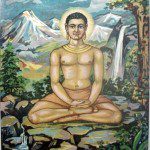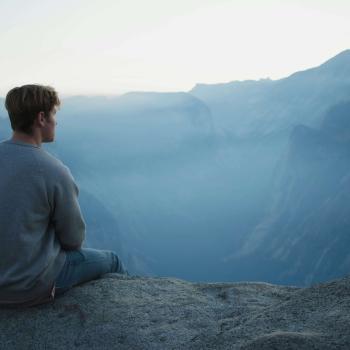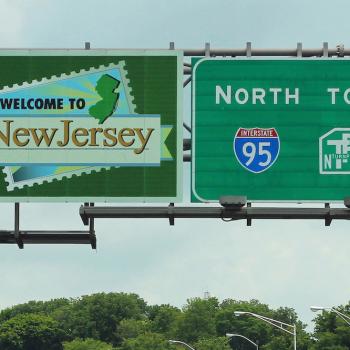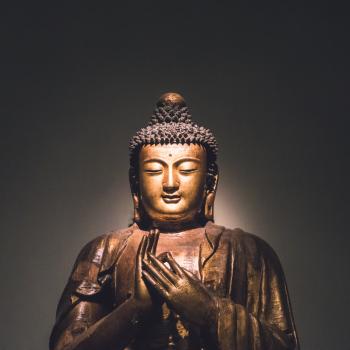 Chris Lemig was one messed up dude. He had gone 23 years without having a single sober day, overindulging in all manners of booze and drugs. He had hurt friends, family, anyone who ever got close to him. Wracked by guilt, confused about his sexual identity and without hope, he hated himself.
Chris Lemig was one messed up dude. He had gone 23 years without having a single sober day, overindulging in all manners of booze and drugs. He had hurt friends, family, anyone who ever got close to him. Wracked by guilt, confused about his sexual identity and without hope, he hated himself.
And then, just when he had hit rock bottom, Lemig was saved…by the Buddha.
Funny how when you hear stories about people being saved from addiction, it’s often Jesus who does the saving. But Chris, in his most dire moment of need, was called to a different path. He tells the story in his book The Narrow Way—and it is one harrowing tale of a man in a vicious downward spiral who somehow finds his way to a safety net of clarity and inner peace.
How bad was it for Lemig? He reaches the point where he believes his inner demons have won and he gives up. He writes what amount to suicide notes to the people he loves, apologizing “for all my failings and all my broken promises”. He believes his situation is hopeless and tells them he “just can’t bear to live one more day as a failed human being.”
But as he sinks from one moment of depravity and deep despair to the next, something kicks in: He needs to save himself. There is not one single point of enlightenment, no flash of lightening, more a gradual awareness that there is a potential path of survival. It is the way of the Buddha.

Lemig doesn’t have a clear understanding of what this path entails so he begins devouring Buddhist texts, reading everything from Robert Thurman to Sommerset Maugham to the life stories of the Buddha and the Dalai Lama.
He also comes to the realization that he must heal his body as well as his soul and declares “war on the enemies of my body”. He changes his diet, cutting out sugar, fast food, dairy products. He begins a daily exercise regime. But not surprisingly, after 23 years of self-inflicted abuse, the doubts creep in. Lemig writes:
I am still scared. I am on new ground that shifts and sometimes even crumbles under my feet. I do not know how to stand, how to walk, how to run. But I put one foot out anyway, hoping it will touch solid earth.
Lemig then takes his new faith practice a step further. He makes a pilgrimage to India to study at a renowned Buddhist retreat center. Once there, the road is rockier than he anticipated. The drastic cultural and societal change of India leaves him “disoriented and bewildered”, at every turn he finds “noise, poverty, pollution, disease”.
While he seems to have conquered his alcohol and drug demons, his self-doubt resurfaces and he again begins to doubt his mission. But per the sage advice of the Buddha he continues to take one step forward. And slowly but surely he begins to sense a change within:
As I embrace all of these shortcomings I begin to feel myself let go. The merciless inner critic who used to slash me down to the bone is silenced and for the first time in my whole life, I feel real compassion for myself. Finally, I see the reality of my own suffering and I am not so afraid of it anymore.
With the help of a local healer, he discovers how to love himself again. He writes himself “love notes”, words of encouragement. He also begins telling himself “I love you” and while he admits to feeling foolish at first, he says that, “slowly, very slowly, I start to believe it”. He comes to realize that he is his own best friend.
So will Lemig live happily ever after? The author admits “there is every possibility that I could start drinking and using again, that I could become selfish and cruel again, that I could steal, betray, throw away a friendship for a drink or a hit. Nothing is certain or guaranteed”. He must take life one day, one step, at a time.
After reading Lemig’s enthralling book, I had one question which I forwarded to the author. Why Buddha? Could he not just as easily followed the teachings of Jesus or the Vedas or the 12 Steps of the Friends of Bill program. He wrote me back the following response:
I guess it doesn’t really matter. Buddhism just resonated for me. The important thing about recovery is that we connect and identify with something larger than the small self.
And after all, isn’t that really what spirituality and personal enlightenment are all about? Identifying with something larger than the self, no matter where that something may come from or what we may call it?












